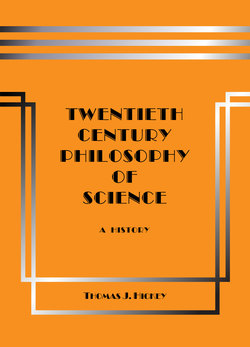Читать книгу Twentieth-Century Philosophy of Science: A History (Third Edition) - Thomas J. Hickey - Страница 25
На сайте Литреса книга снята с продажи.
Thesis II: Empirical underdetermination.
ОглавлениеEmpirical underdetermination refers to the limited ability of the semantics of language at any given time to signify reality.
Measurement error and conceptual vagueness, which can be reduced indefinitely but never completely, eliminated, exemplify the omnipresent and ever-present empirical underdetermination of language that produces observational ambiguity and theoretical pluralism. Einstein recognized that a plurality of alternative but empirically adequate theories could be consistent with the same observational description, a situation that in his autobiography he called “an embarrassment of riches”.
Additional context including law statements in improved test-design language contributes additional semantics to the observational description in the test designs, thus reducing while never completely eliminating empirical underdetermination. In his Word and Object Quine introduced the phrase “empirical underdetermination”, and wrote that the positivists’ theoretical terms are merely more empirically underdetermined than terms they called observation terms. Thus the types of terms are not qualitatively different.
